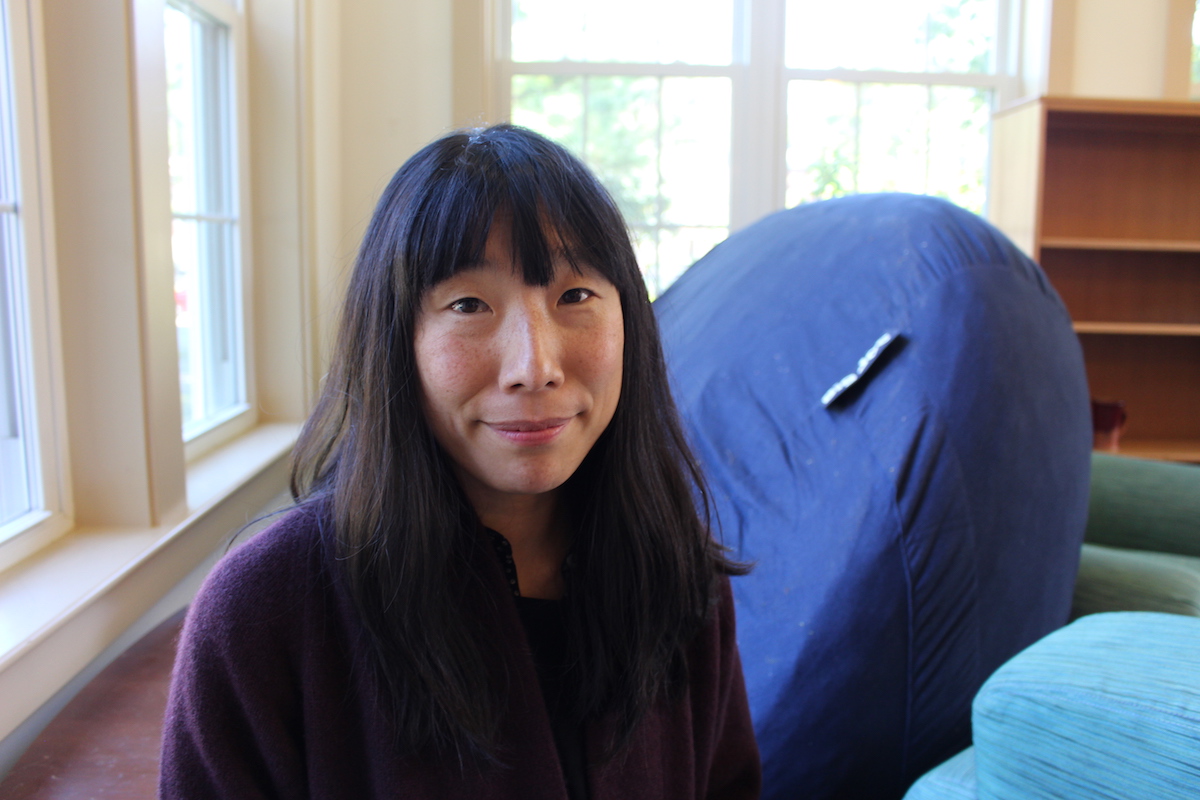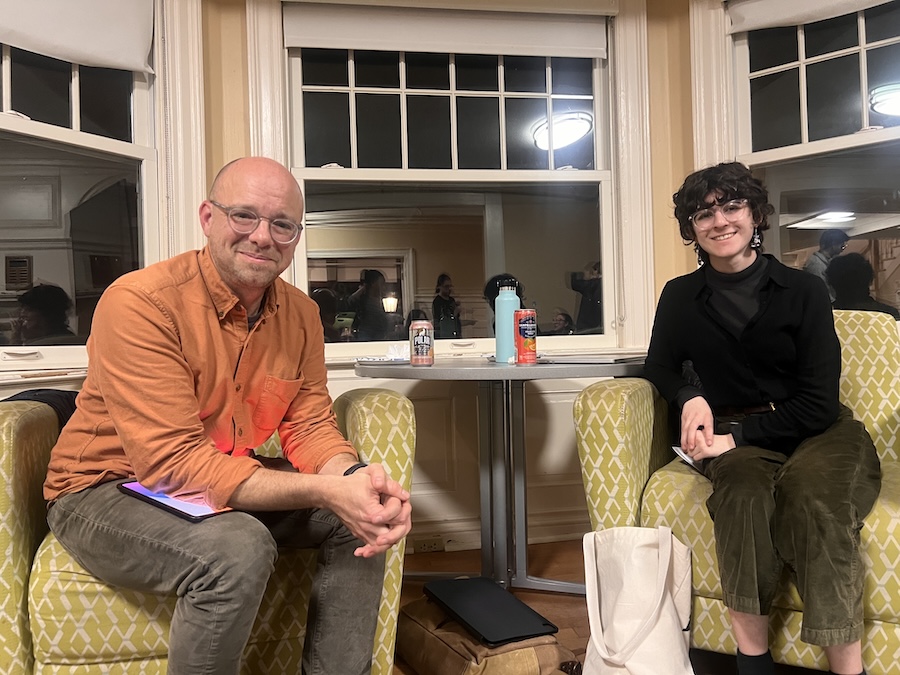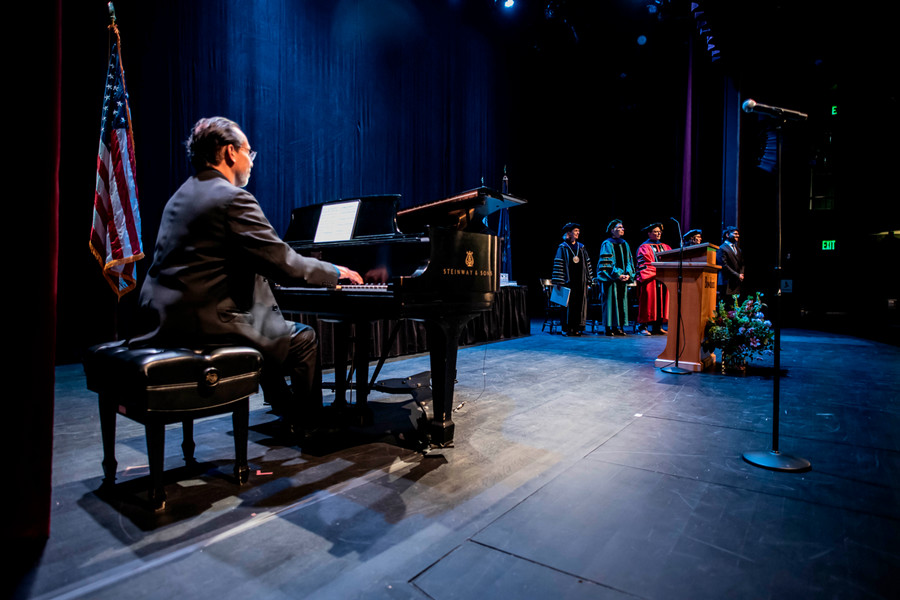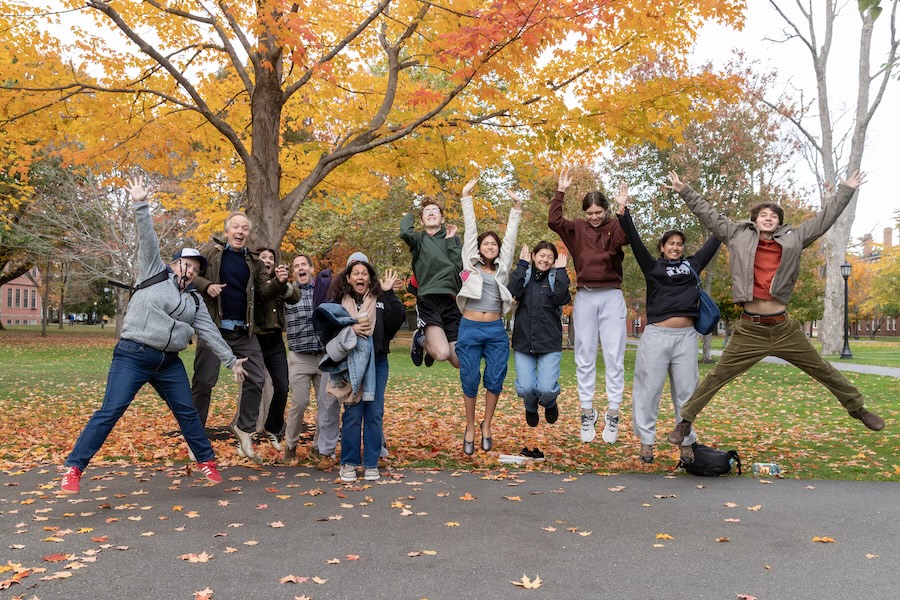A Conversation with New York Times Reporter Katie Benner ’99
By Julius Long ’20
Benner is an award-winning journalist who has reported on everything from financial markets and private equity to workplace and employee rights. She now covers the US Department of Justice for The New York Times and was a part of a team that won a Pulitzer Prize for reporting workplace sexual harassment.
During a two-hour conversation with students, she reflected on the twenty years since she graduated, sharing with warmth and humor the lessons she has learned throughout her career in print media.
As Benner fielded questions about her path from Bowdoin to The New York Times, she could only describe it as nontraditional. "There was no natural progression that led me to The New York Times...other than really understanding how important relationships are and how important it is to be willing to try new things.”
She had no firm plan after graduating from Bowdoin—let alone a sense of what professional path she wanted to embark on. "I didn't know what I wanted to do right up to the day I graduated from Bowdoin. And for many, many days and months after, I had zero idea of what I wanted to do," she said.
A friend convinced her to move to Beijing to teach English. Then 9/11 hit. Desperate to find out what was happening, she began collecting information, including how Americans living overseas were being impacted by the events. A journalist friend told her this had legs for a news story.
She pitched the idea to the Portland Press Herald, a daily paper in Maine. Even in this situation, relationships she had formed years earlier may have helped. One of her many "fantastic jobs!" had been at a deli in Portland, where she had regularly made sandwiches for some of the paper's reporters and editors. The newspaper ended up taking her story, and her writing career was launched.
When she returned to the US, she applied for a reporter job with CNN Money. Though she didn't have a financial background, she convinced the dubious editor to hire her. "I'm interested in journalism," she told him. "I am broke, and I will work extremely hard. I can learn. All journalism is is asking questions about things you don't know and finding answers."
Benner made it clear that the person she is and the career she has had is a reflection of her inquisitiveness, a quality encouraged by her Bowdoin professors. While on campus last week, she reconnected with some of them, including Professor of English David Collings and Professor of Cinema Studies Tricia Welsch—who were both in attendance—and with Associate Professor of Government and Asian Studies Henry Laurence.
She also readily admitted to the gathered students that she had struggled academically at Bowdoin and was not always clear about her place at an institution that she said was at that time just beginning to recognize its issues with retaining minority and low-income students. Despite those challenges, she found a cohort of faculty who were invested in her growth as a student and instrumental in cultivating the skills she uses every day on the job.
"I did struggle at Bowdoin. But I think my professors were really understanding of who I was as a person when I was seventeen, eighteen, and nineteen years old—which was definitely a person in progress. I might still owe Professor Collings a paper," she said with a laugh. "But, grades aside and achievement aside, it was such a privilege to get to spend time with those who had dedicated their whole lives to being both intellectually curious and curious about other people."
Evran Urus ’23 was among several aspiring journalists in the room. "It was a great pleasure to be able to hear her fascinating stories and perspectives in such an intimate setting," he said. He underscored the pieces of wisdom that Benner left him with. "What I took away is that journalism is a profession in which you proceed to learn, and, in doing so, you become intellectually and socially flexible through sympathetic and inquisitive comprehension.”



